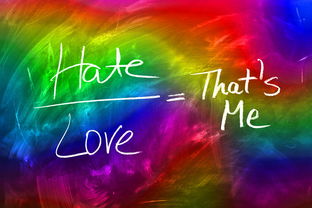英语文学中反语用法是什么
Exploring the Usage of Irony in English Literature
Irony is a powerful literary device that adds depth, complexity, and often humor to English literature. It involves conveying a meaning that is opposite to the literal interpretation of the words, often to emphasize a point, create contrast, or reveal hidden truths. Let's delve into the various forms and functions of irony in English literature.
Verbal irony occurs when a character says something but means the opposite. It can be subtle or overt, depending on the context.
For example, in Shakespeare's "Julius Caesar," Mark Antony repeatedly refers to Brutus and the other conspirators as "honorable men" while subtly revealing their treachery, thus employing verbal irony to criticize their actions.
Verbal irony serves to highlight hypocrisy, sarcasm, or the divide between appearance and reality in literature.

Situational irony arises when there is a contradiction between what is expected to happen and what actually occurs. This type of irony often involves unexpected twists or outcomes.
In O. Henry's short story "The Gift of the Magi," the protagonists sacrifice their most prized possessions to buy gifts for each other, only to discover that the gifts are now useless due to the sacrifices they made. This unexpected twist exemplifies situational irony.
Situational irony can evoke a range of emotions from amusement to pathos and is commonly used to emphasize the unpredictability of life.
Dramatic irony occurs when the audience or reader knows something that the characters do not, leading to tension or anticipation as the narrative unfolds.
For instance, in Sophocles' "Oedipus Rex," the audience is aware of Oedipus's true identity and the tragic consequences of his actions, while Oedipus himself remains ignorant until the climax of the play. This creates a sense of dramatic irony as the audience watches events unfold inexorably towards their inevitable conclusion.
Dramatic irony adds depth to characterization and narrative tension, inviting the audience to engage with the story on a deeper level.
Cosmic irony, also known as irony of fate or irony of destiny, refers to a situation where a character's efforts are thwarted by forces beyond their control, often with tragic consequences.
One classic example is Thomas Hardy's novel "Tess of the d'Urbervilles," where the titular character's attempts to escape her tragic fate only lead her closer to it, highlighting the cruel and indifferent nature of the universe.
Cosmic irony underscores themes of determinism, mortality, and the limitations of human agency in the face of cosmic forces.
Irony is a multifaceted literary device that enriches English literature by adding depth, complexity, and insight into the human condition. Whether through verbal irony, situational irony, dramatic irony, or cosmic irony, writers use this tool to engage readers, provoke thought, and convey profound truths about life and society. By understanding and appreciating the various forms and functions of irony, readers can gain a deeper insight into the works of English literature and the complexities of the human experience.











